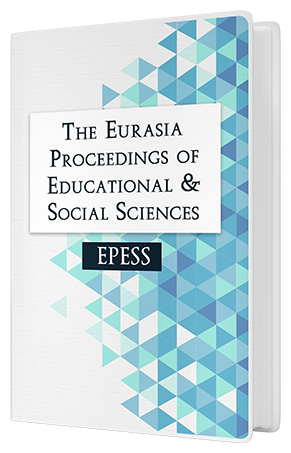The Use of Digital Storytelling in the Education of Social Studies Teacher Candidates
Keywords:
Digital storytelling, Social studies, Teacher candidatesAbstract
The aim of this study is to determine the topics and reasons that social studies teacher candidates prefer after receiving digital story creation, use and evaluation training; to reveal their plans to integrate digital stories into social studies lessons in their future professional lives. The research is designed as a case study, which is one of the qualitative research methods. This study was carried out with 26 teacher candidates attending the Education Faculty Social Studies Teaching Program of a state university in Eastern Anatolia. Participants of this study, which is conducted with 1st grade students, have not received any training on the creation, use or evaluation of digital stories and have not prepared a digital story. Within the scope of the research, training was provided for 4 weeks on the characteristics of digital stories and their integration into social information. After the training, a semi-structured interview form was developed and used to determine the topics they preferred in the secondary school social studies curriculum and their reasons, and to determine their plans for using digital stories in their future professional lives. At the end of the research, it was determined that the most preferred subjects were in the field of active citizenship and global connections learning and that they displayed a positive approach to using digital stories effectively in their future professional lives.Downloads
Published
Issue
Section
License
Copyright (c) 2020 The Eurasia Proceedings of Educational and Social Sciences

This work is licensed under a Creative Commons Attribution-NonCommercial-ShareAlike 4.0 International License.
The articles may be used for research, teaching, and private study purposes. Any substantial or systematic reproduction, redistribution, reselling, loan, sub-licensing, systematic supply, or distribution in any form to anyone is expressly forbidden. Authors alone are responsible for the contents of their articles. The journal owns the copyright of the articles. The publisher shall not be liable for any loss, actions, claims, proceedings, demand, or costs or damages whatsoever or howsoever caused arising directly or indirectly in connection with or arising out of the use of the research material. All authors are requested to disclose any actual or potential conflict of interest including any financial, personal or other relationships with other people or organizations regarding the submitted work.




